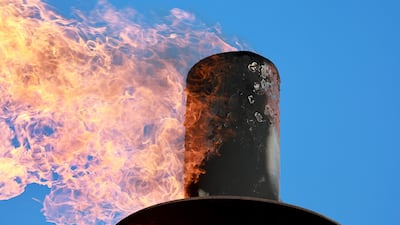The Texas cryptocurrency industry is lobbying state lawmakers to introduce legislation that would eliminate taxes on sales of flared gas that is used to mine Bitcoins, seeking to reduce costs and lure more miners to the Lone Star State.
The Texas Blockchain Council, the crypto industry’s lobbying arm, wrote a draft bill that it hopes will be introduced in the next legislative session, starting in January, said the council’s president, Lee Bratcher.
The text is a copycat of a Wyoming measure signed into law a year ago which cuts state taxes on certain uses of excess gas that would otherwise be trapped at well heads and burned off.
It is the latest attempt by the cryptocurrency industry to shape policy and make Texas more attractive to miners who use vast computer arrays to solve cryptographic puzzles and are rewarded with Bitcoin.
Texas lawmakers, with support from Governor Greg Abbott, have already taken some of the most aggressive steps in the US to lure the crypto industry, especially Bitcoin.
In May, Mr Abbott signed a law that makes it easier for businesses to use crypto as collateral for loans and hold them as assets. Mr Abbott also created the Work Group on Blockchain Matters, staffed by industry insiders, to come up with more ways to lure crypto investors, developers and miners.
“This tax abatement is another way Texas can give even more incentive to people to mine Bitcoins,” Griffin Haby, business development manager at Limpia Creek Technologies, a crypto mining company, said at a Bitcoin conference in Houston. He helped write the draft bill.
The baseline tax on oil and gas producers in the state, called the Texas severance tax, is 7.5 per cent of market value for natural gas.
There has been a rush of investors to fuel Bitcoin mines with gas that would otherwise be burned off or vented into the atmosphere in oil-producing fields.
Proponents say this is a way to profit from energy that otherwise would be wasted while also lowering greenhouse gas emissions. But critics say it is giving incentives for oil producers to continue drilling instead of shifting away from fossil fuels.

